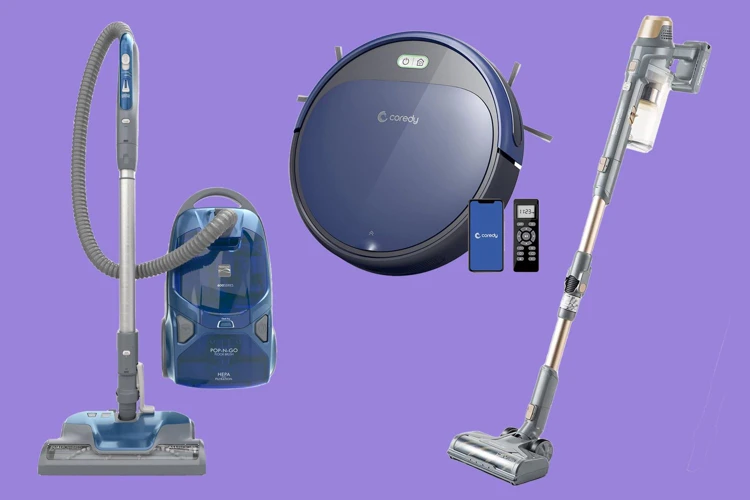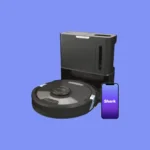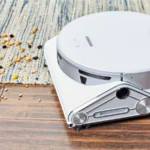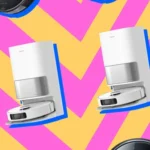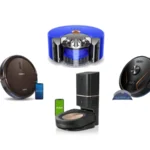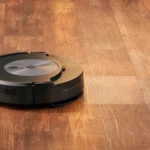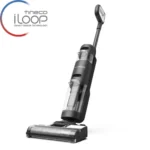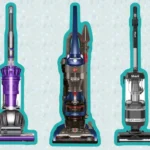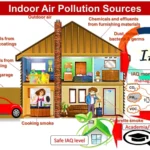Introduction
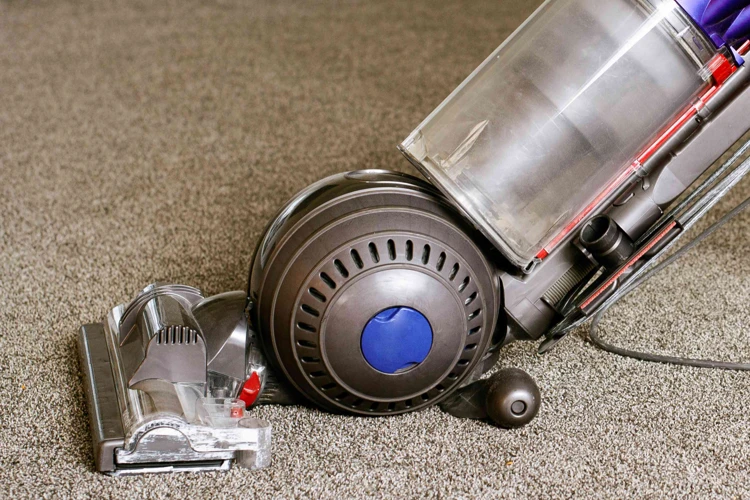
Allergies can be a pesky problem for many people, causing symptoms such as sneezing, itchy eyes, and congestion. Finding ways to alleviate these symptoms is crucial for anyone suffering from allergies, and one of the best solutions is a HEPA air filtration system. In this article, we’ll explore everything you need to know about HEPA filtration and allergies, and how a smart vacuum cleaner with HEPA filtration can help reduce allergy symptoms. So, let’s dive in and discover how a smart vacuum cleaner can make a difference in your home.
The Prevalence of Allergies
Allergies are a very common condition that affect millions of people worldwide. In fact, according to the American College of Allergy, Asthma & Immunology, allergies are the 6th leading cause of chronic illness in the United States. This means that allergies account for a significant portion of people’s healthcare visits and expenses.
Allergies can be caused by a variety of substances such as pollen, dust, pet dander, and more. When exposed to these allergens, a person’s immune system reacts, triggering a variety of symptoms such as sneezing, coughing, and even respiratory issues. It’s estimated that up to 30% of adults and 40% of children in the US suffer from allergies.
Allergies can have a significant impact on a person’s overall wellbeing, affecting their sleep quality, productivity, and even their mental health. According to a study published in the American Journal of Respiratory and Critical Care Medicine, allergies have been associated with an increased risk of anxiety and depression.
Given the prevalence and negative impact of allergies, it’s important to take steps to manage and reduce allergen exposure. One effective way to do this is through the use of HEPA filtration. HEPA filtration is a powerful type of air filtration that can remove up to 99.97% of particles as small as 0.3 microns, including common allergens. Using HEPA filtration can significantly improve the air quality in your home and reduce your allergy symptoms. For more information on HEPA filtration, see HEPA Filtration and Home Air Quality.
HEPA Filtration Explained
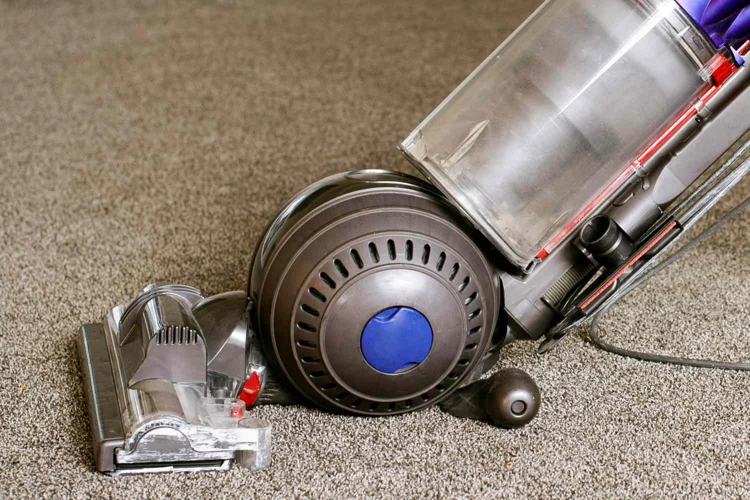
In order to combat allergies effectively, it’s important to understand the science behind HEPA filtration. HEPA filtration is a powerful tool in the fight against allergens, and it’s crucial to understand how it works and why it’s so effective. HEPA stands for High Efficiency Particulate Air, and it’s a type of filter that’s designed to capture particles that are often too small for other types of filters to pick up. This includes things like pollen, pet dander, and even some types of bacteria. By understanding how HEPA filtration works, you can take steps to reduce the number of allergens in your home and improve your overall health.
What is HEPA?
HEPA stands for High-Efficiency Particulate Air. It is a type of filter made from a dense mat of randomly arranged fibers that capture particles as air flows through. A filter must pass stringent standards to earn a HEPA rating. To be classified as HEPA, a filter must capture at least 99.97% of particles that measure 0.3 microns or larger in size. It is important to note that HEPA is a standard, not a brand or specific product. There are many manufacturers that offer HEPA filtration in their products. HEPA Filtration is used in a variety of applications, such as air purifiers, vacuum cleaners, and HVAC systems. HEPA filtration is especially important for allergy and asthma sufferers, as it effectively captures particles that can trigger respiratory issues.
To learn more about HEPA filtration and how it compares to standard filtration, check out our article on HEPA Filtration vs Standard Filtration. If you’re interested in the benefits of smart HEPA vacuum cleaners, head over to our article on the Benefits of Smart HEPA Vacuum Cleaners. Proper maintenance of your HEPA filter is also important for optimal performance, and you can find tips on how to do this in our article on Smart Vacuum HEPA Filter Maintenance.
How does HEPA Filtration work?
HEPA filtration is a method of air purification that is designed to remove small particles from the air, particularly those that can cause allergies. HEPA filters work by using a combination of three methods: interception, impaction, and diffusion.
| Method | Description |
|---|---|
| Interception | This method captures particles as they pass near the fibers of the filter. |
| Impaction | This method captures particles as they collide with the fibers of the filter. |
| Diffusion | This method captures particles that are too small to be captured by the first two methods by causing them to collide with gas molecules, which then become trapped by the filter. |
When air flows through a HEPA filter, particles are removed from the air and trapped in the filter. This includes particles such as pollen, pet dander, and dust mites. Because HEPA filters are so effective at removing small particles from the air, they are ideal for use in homes where people suffer from allergies.
HEPA filtration is important for reducing allergies because airborne particles can trigger allergies and asthma attacks. By removing these particles from the air, HEPA filters can help reduce the number and severity of allergies and asthma attacks.
To learn more about how HEPA filtration can benefit those with allergies and how smart vacuum cleaners can utilize this technology, check out our article on /hepa-filtration-smart-vacuums/.
Why is HEPA Filtration important for Allergies?
HEPA filtration is crucial for reducing and preventing allergies because of its ability to capture and trap tiny particles that can trigger allergic reactions. HEPA filters are designed to capture 99.97% of particles that are 0.3 microns or larger in size. To put that in perspective, a human hair is about 70 microns in thickness. This means that HEPA filters can trap most of the common allergens in indoor air, including dust mites, pollen, pet dander, and mold spores.
HEPA filtration is especially important for people with allergies because it provides a way to remove allergens from the air without the use of harsh chemicals or irritants that could make allergies worse. By using a vacuum cleaner with a HEPA filter, you can reduce the amount of allergens in your home and improve the air quality.
HEPA filtration is also an environmentally friendly option because it does not produce any harmful byproducts or emissions. Unlike other air-cleaning methods, such as ionizers or ozone generators, HEPA filters do not produce any harmful byproducts or emissions. This makes them a safe and effective option for allergy sufferers who want to reduce their environmental impact.
It’s important to note that there are some HEPA filtration myths out there that can be misleading. For example, some people believe that all HEPA filters are the same or that they can’t be cleaned or reused. In reality, there are different levels of HEPA filtration, and some filters can be washed and reused several times before they need to be replaced.
For allergy sufferers, a smart vacuum cleaner with HEPA filters is an excellent tool for keeping your home allergen-free. Smart vacuums come equipped with extra features that make it easy to clean hard-to-reach areas and keep your home allergen-free. There are a variety of features to look for, such as self-emptying bins, scheduling options, and mapping software that can help you optimize your cleaning routine. By using a smart vacuum with HEPA filters, you can make allergy reduction a breeze.
By investing in a smart vacuum cleaner with HEPA filtration, and implementing best practices for using it, you can greatly reduce the amount of allergens in your home. For example, vacuuming frequently and thoroughly, starting from the top of the room and working your way down, can help you capture more allergens. Additionally, cleaning your vacuum regularly and following the manufacturer’s instructions for filter replacement and maintenance is crucial for maintaining optimal performance.
HEPA filtration is critical for reducing and preventing allergies. Using a smart vacuum cleaner with HEPA filters can provide a safe, effective, and environmentally friendly way to remove allergens from your home. By implementing best practices for using your smart vacuum, you can greatly reduce the amount of allergens in your home and improve your quality of life. For more information on smart vacuum cleaners with HEPA filtration, check out our article on Smart Vacuum Cleaners with HEPA Filters.
How a Smart Vacuum Cleaner Can Help
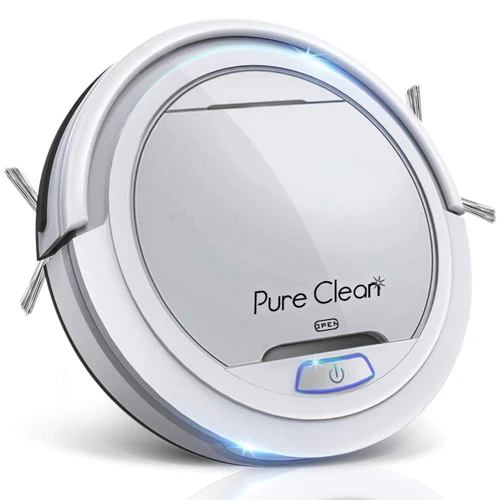
Asthma, allergies, and other respiratory issues can be caused or exacerbated by indoor pollutants, such as dust, smoke, pet dander, and mold. Fortunately, there are many tools to help reduce these pollutants, including air purifiers, humidifiers, and smart vacuum cleaners. In this section, we will focus on the benefits of smart vacuum cleaners and how they can help reduce allergies. We will explore what a smart vacuum cleaner is and the features to look for in a vacuum cleaner for allergies. Additionally, we will provide best practices for using a smart vacuum cleaner and additional tips for allergy reduction. By the end of this section, you will have a better understanding of how a smart vacuum cleaner can improve your indoor air quality and reduce allergies.
What is a Smart Vacuum Cleaner?
A smart vacuum cleaner is an advanced version of a traditional vacuum cleaner that provides various automated features, making the cleaning process effortless and efficient. These vacuums incorporate the latest technologies such as Wi-Fi connectivity, app control, voice control, and smart sensors, to help optimize the cleaning process.
Smart Vacuum Cleaners:
- utilize Wi-Fi connectivity to allow the user to operate the vacuum remotely with a smartphone or tablet
- connect to a mobile app that can schedule cleaning and set cleaning preferences
- enhance cleaning efficiency by utilizing smart sensors that detect dirt and debris
- feature voice control capabilities that allow the user to operate the vacuum using voice commands supported by virtual assistants such as Amazon Alexa and Google Assistant
These features not only make cleaning easier but also help to promote a cleaner environment by ensuring that floors and other surfaces remain free from dust and dirt.
Smart vacuum cleaners also come in different models dedicated to specific cleaning requirements. For instance, there are smart vacuum cleaners with HEPA filtration meant for pet owners, to help eliminate pet hair and pet dander which are common allergens. HEPA filtration is a robust technology that cleans the air by trapping tiny particles that traditional filters such as fiberglass cannot filter out.
If you want to learn more about HEPA filtration, read our comprehensive article which debunks some of the misconceptions about this technology, and highlights why HEPA filtration is eco-friendly.
In the next section of the article, we will explore the benefits of a smart vacuum cleaner and why it is essential for allergies.
Benefits of a Smart Vacuum Cleaner
One of the main benefits of using a smart vacuum cleaner is that it can help not only with general cleaning, but also with allergy reduction. Here are some of the key benefits of using a smart vacuum cleaner:
| Benefit | Description |
|---|---|
| HEPA Filtration | A smart vacuum cleaner equipped with HEPA filtration can capture over 99% of particles as small as 0.3 microns, including pollen, dust mites, and pet dander. |
| Efficiency | A smart vacuum cleaner can clean your home more efficiently and effectively than a traditional vacuum cleaner. Some models can even be controlled through a smartphone app, allowing you to start cleaning when you’re away from home. |
| Convenience | Smart vacuum cleaners can be programmed to clean on a schedule, so you don’t have to worry about it. They can also be used on a variety of flooring types, including hardwood, carpet, and tile. |
| Pet-Friendly | For pet owners, smart vacuum cleaners can be a lifesaver. Some models are specifically designed for pet hair and dander, and can even empty the dustbin on their own. Check out our article on smart vacuum cleaners for pet owners for more information. |
| Environmentally Friendly | Many smart vacuum cleaners are designed to be environmentally friendly, using less energy and producing less waste than traditional vacuum cleaners. |
A smart vacuum cleaner with HEPA filtration can make a big difference in the fight against allergies. It can capture even the smallest particles, making the air in your home cleaner and healthier. A smart vacuum cleaner can make cleaning more efficient, convenient, and pet-friendly.
Features to Look for in a Smart Vacuum Cleaner for Allergies
When looking for a smart vacuum cleaner to help with allergies, there are several key features you should consider. Here are some of the most important ones:
- HEPA filtration: As mentioned earlier, HEPA filtration is crucial in capturing allergens. Look for a vacuum cleaner that specifically states it has a HEPA filter and that the filter is replaceable.
- Powerful suction: The stronger the suction, the better the vacuum cleaner will be at picking up allergens and other debris from your floors and carpets.
- Multiple brush options: Different types of brushes are better suited for different types of flooring. Look for a vacuum cleaner that comes with multiple brush options, such as a motorized brush for carpets and a soft brush for hardwood floors.
- Large dustbin: A vacuum cleaner with a larger dustbin means you won’t have to empty it as often, which is helpful for those with allergies who may be sensitive to dust and other allergens.
- Quiet operation: Some vacuum cleaners can be extremely loud and disruptive, which can be especially frustrating if you’re trying to vacuum while someone in your household is working or sleeping. Look for a vacuum cleaner that operates quietly.
- Smart features: Some smart vacuum cleaners come with additional features that can be especially helpful for those with allergies. For example, some models have sensors that can detect areas of your home where allergen levels are particularly high, while others have UV-C lights that can help eliminate bacteria and other pathogens.
Keep in mind that not all smart vacuum cleaners are created equal, and what works well for one person may not work as well for another. It’s important to do your research and read reviews from other allergy sufferers before making a purchase.
Using a Smart Vacuum Cleaner for Allergy Reduction
Now that we have covered the basics of HEPA filtration and why it is important for allergies, it is time to delve into the practical ways in which a smart vacuum cleaner can help reduce allergens in your home. By using cutting-edge technology, these advanced vacuum cleaners can do much more than just remove dirt and debris from your floors. Let’s explore the many benefits that a smart vacuum cleaner can offer allergy sufferers like yourself.
Best Practices for Using a Smart Vacuum Cleaner
Proper use of a smart vacuum cleaner can make a significant impact on allergy reduction. Here are some best practices to keep in mind in order to maximize its effectiveness:
- Regular use: A smart vacuum cleaner is only effective if it is used consistently. Aim to vacuum high traffic areas and bedrooms at least once or twice a week. For those who suffer from severe allergies, daily use may be necessary.
- Use the right attachments: Different attachments are designed for specific surfaces and areas of your home, such as carpets, hardwood floors, and upholstery. Using the appropriate attachment ensures maximum dust and allergen removal.
- Empty the dustbin frequently: Even the most advanced smart vacuum cleaner cannot effectively remove allergens if the dustbin is full. Empty it after every use to prevent the buildup of dust mites and pollen.
- Replace filters regularly: In order to maintain HEPA filtration, it’s important to replace filters as recommended by the manufacturer. Typically, filters should be replaced every six months to a year.
- Reduce clutter: Before vacuuming, clear the floors of clutter in order to allow the smart vacuum cleaner to reach all areas of your home, especially corners and crevices that often accumulate allergens.
Remember, these best practices are not only important for allergy reduction, but also for maintaining the longevity of your smart vacuum cleaner. Consistent and proper use can ensure that it functions at its best and helps keep your home a healthy and comfortable environment for those with allergies.
Additional Tips for Allergy Reduction
Reducing allergies can be a daunting task, and while a smart vacuum cleaner is an excellent tool to have at your disposal, there are other ways you can help keep allergens at bay in your home. Here are some additional tips for allergy reduction:
- Wash Bedding Frequently: Dust mites can make themselves at home in your bedding, so it’s essential to wash your bedding at least once a week in hot water to kill off any dust mites or their eggs.
- Remove Carpeting: If possible, removing carpeting from your home can greatly reduce the amount of dust and allergens in your living space. If removing carpets isn’t an option, consider vacuuming them regularly with your smart vacuum cleaner.
- Keep Windows Closed: While fresh air can be an excellent way to ventilate your home, it can also bring in pollen and other allergens. Keeping windows closed can help reduce the amount of pollen that enters your home.
- Clean Pet Areas: If you have pets, their dander can exacerbate allergies. Regularly cleaning their bedding and any areas they frequent can help keep allergens at bay.
- Use an Air Purifier: An air purifier can help remove allergens from the air, complementing the work done by your smart vacuum cleaner. Look for HEPA filtration in an air purifier, which can trap particles as small as 0.3 microns.
By incorporating these tips into your allergy reduction routine in addition to using a smart vacuum cleaner, you can create a clean and allergen-free living space.
Conclusion
In conclusion, HEPA filtration is a crucial element in the fight against allergies. By effectively removing airborne particles such as dust, pollen, and pet dander, HEPA filters in vacuum cleaners can provide relief to allergy sufferers. However, not all vacuum cleaners are created equal. Smart vacuum cleaners take HEPA filtration one step further by utilizing technology to make cleaning more efficient and effective.
When selecting a smart vacuum cleaner for allergy reduction, it’s important to consider features such as multiple cleaning modes, self-charging abilities, and compatibility with mobile apps. These features can greatly enhance the user experience and provide even more relief to allergy sufferers.
It’s also important to remember that using a smart vacuum cleaner alone may not be enough to completely eliminate allergies. Adopting additional measures such as maintaining a clean home, keeping windows closed during high pollen days, and regularly washing bedding can also contribute to allergy reduction.
Overall, investing in a smart vacuum cleaner with HEPA filtration can be a game-changer for individuals with allergies. It can significantly improve air quality within the home and provide much-needed relief from allergy symptoms. By implementing best practices and taking additional measures, allergy sufferers can take control of their environment and breathe easier.
Frequently Asked Questions
What are some common indoor allergens?
Common indoor allergens include dust mites, pet dander, mold, and pollen.
What is HEPA filter?
HEPA filter is a type of filter that is capable of capturing very small particles, including allergens.
Are all vacuum cleaners equipped with HEPA filter?
No, not all vacuum cleaners come with a HEPA filter. Some models require you to purchase the HEPA filter separately as an add-on feature.
What is a smart vacuum cleaner?
A smart vacuum cleaner is a type of vacuum that has built-in technology to help it navigate and clean your home effectively.
Can a smart vacuum cleaner be controlled using a smartphone app?
Yes, many smart vacuum cleaners come with companion apps that allow you to control and monitor your vacuum using your smartphone.
Do smart vacuum cleaners only work on hard flooring?
No, many smart vacuums can clean both hard flooring and carpeted surfaces.
What are the benefits of using a smart vacuum cleaner for allergy reduction?
A smart vacuum cleaner can help reduce allergy symptoms by effectively removing allergens from your home.
How often should you use a smart vacuum cleaner for allergy reduction?
You should use your smart vacuum cleaner at least once a week, especially in high traffic areas or rooms where allergens are concentrated.
Can a smart vacuum cleaner reduce allergy symptoms completely?
No, a smart vacuum cleaner can only reduce allergy symptoms by removing allergens from your home. You may still need to take medication or other measures to manage your allergies.
Is HEPA filter washable and reusable?
No, HEPA filters are typically not washable or reusable. They need to be replaced on a regular basis to ensure proper filtration.
